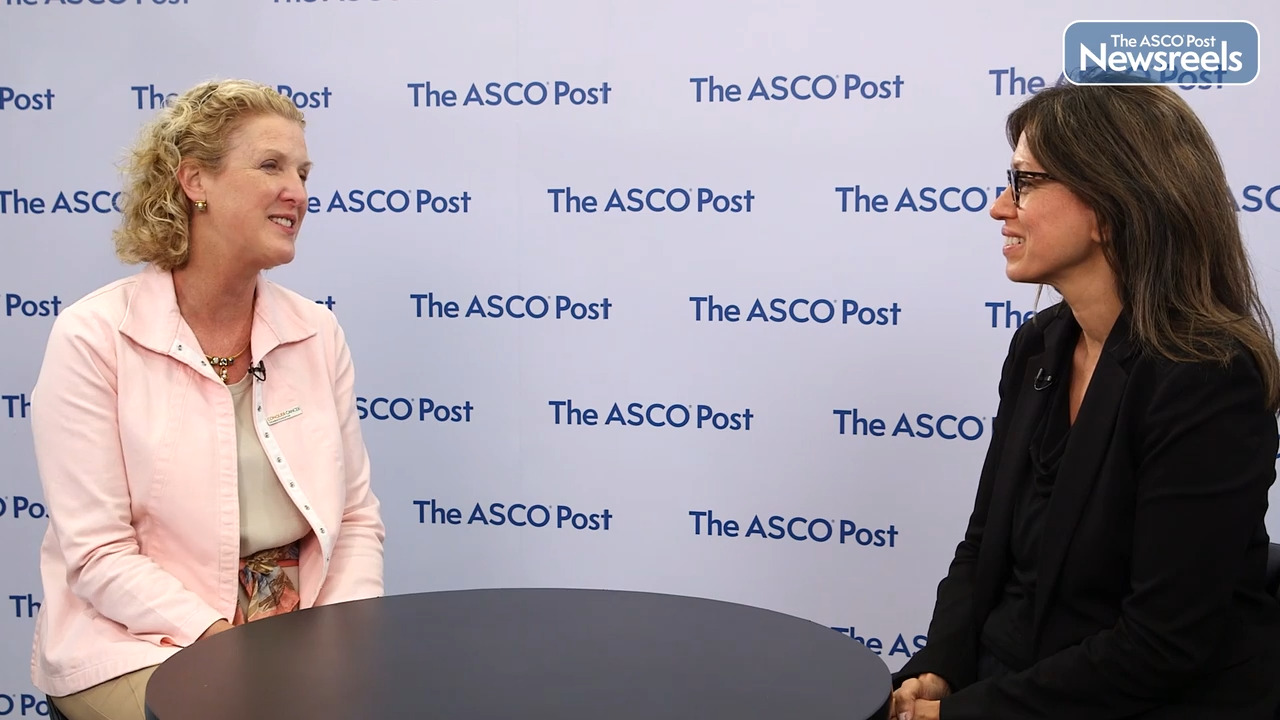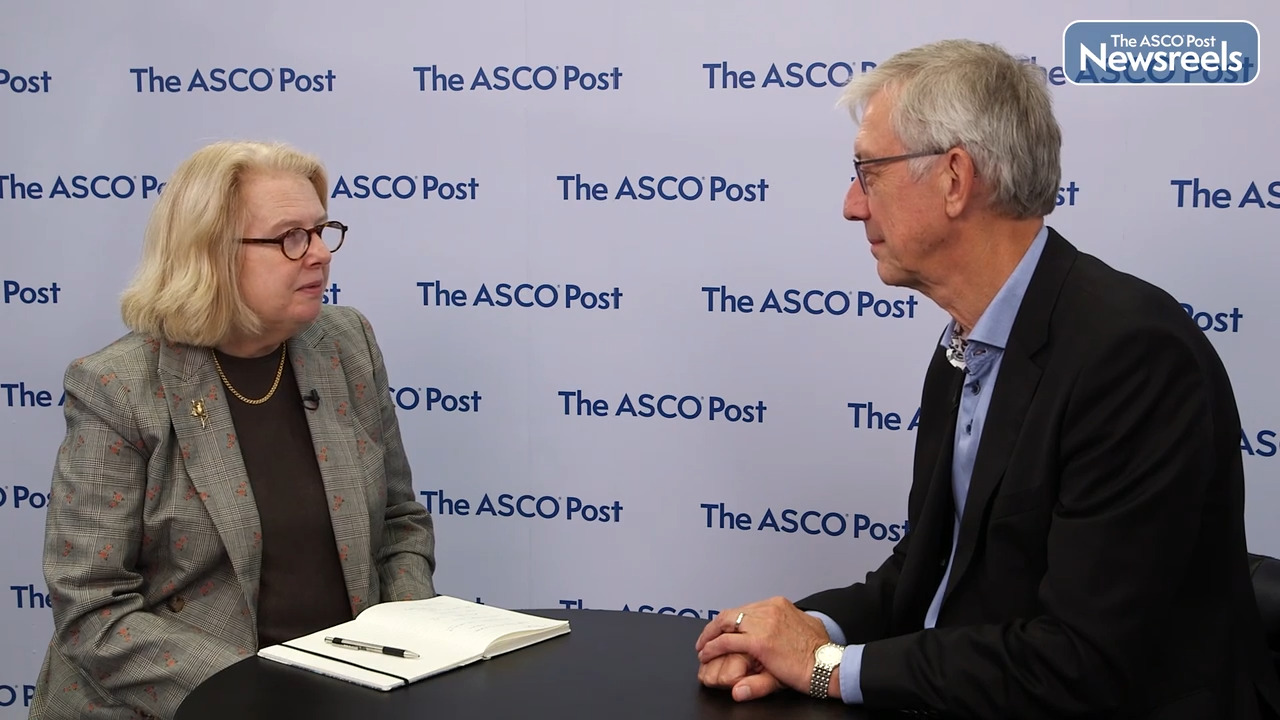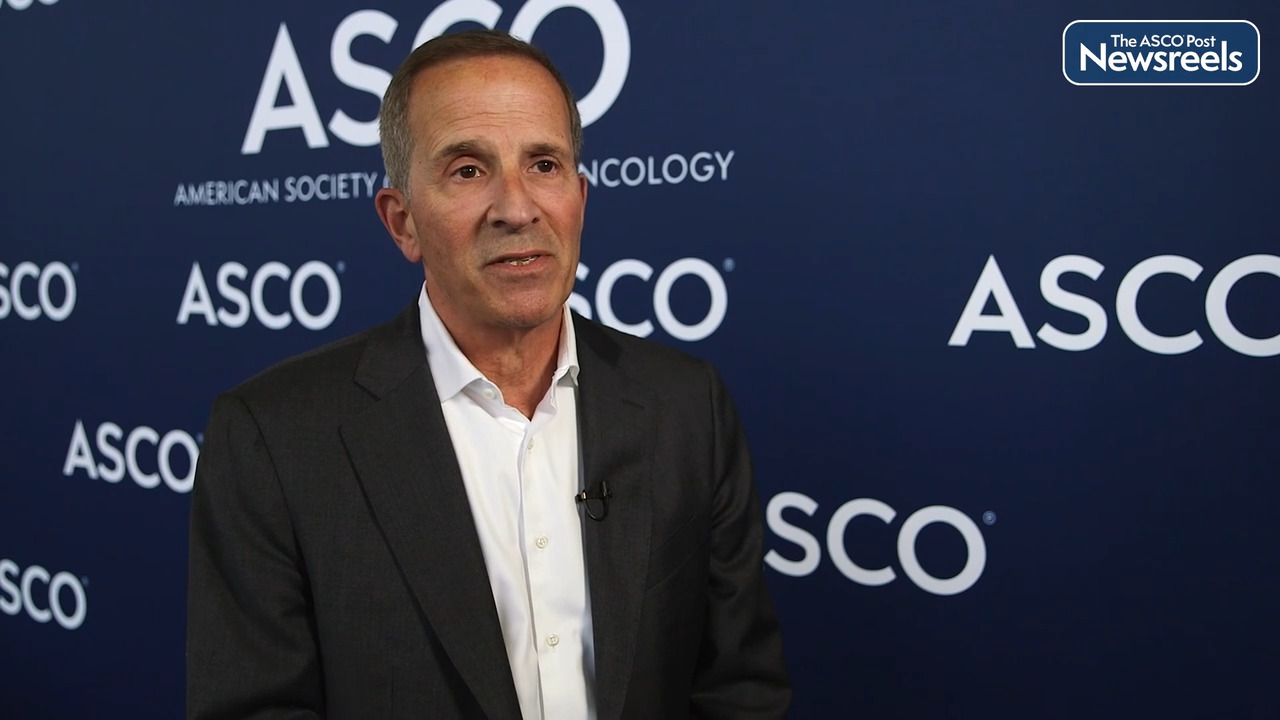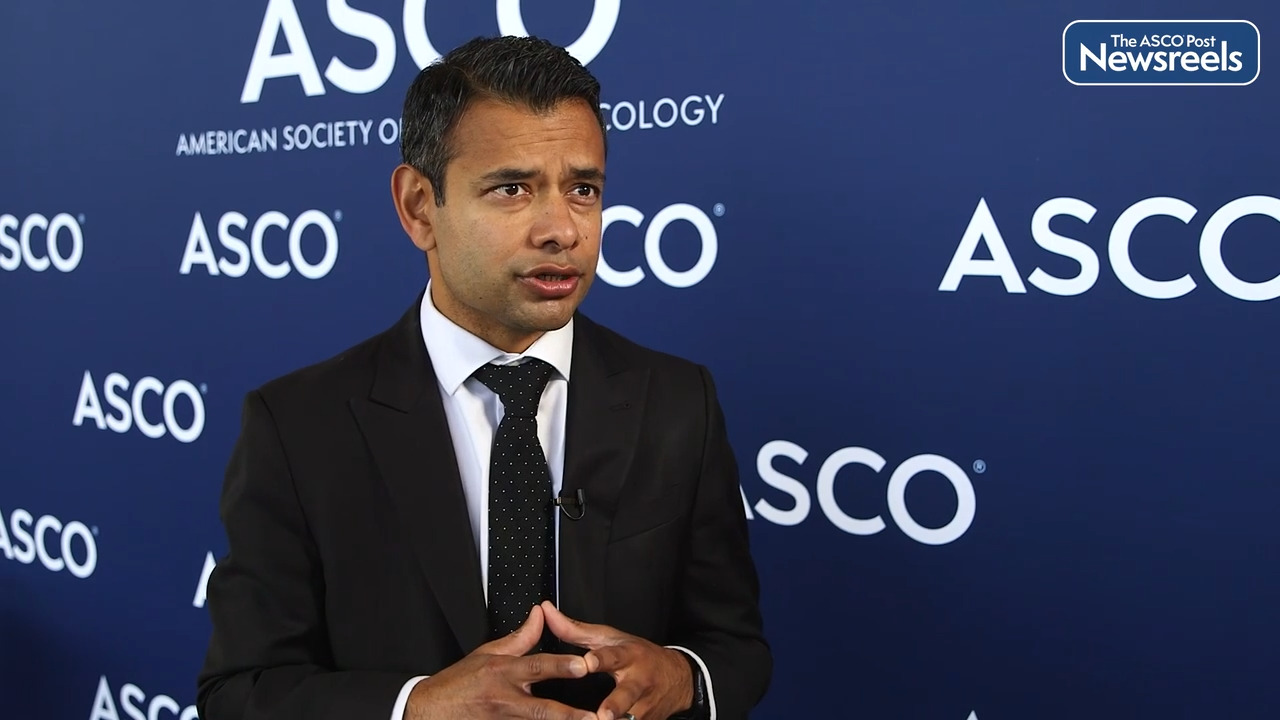Transcript
Disclaimer: This video transcript has not been proofread or edited and may contain errors.
Ann Partridge:
So Kevin, the CDK4/6 inhibitors have been now a mainstay of treatment for our patients with hormone receptor positive breast cancer when it's become metastatic and now in the adjuvant setting for some. And yet when they stop working with endocrine therapy, we've said, are we done with them or could we eke little more benefit out of them? And then along comes first in its class, the MAINTAIN trial. Tell us about that.
Kevin Kalinsky:
Sure. So one of the questions has really been what's the role for CDK4/6 inhibition after CDK4/6 inhibition? And there have been real world data, as well as some clinical data, suggesting that the anti-proliferative effect is no longer there once you stop the CDK4/6 inhibitor. And that's really the rationale for this study. And this is-
Ann Partridge:
Try and get it back.
Kevin Kalinsky:
Try to get it back, try to get back. And so this is the first randomized placebo-controlled trial. There are others that will report hopefully soon. This was a study for patients who had a tumor progression in metastatic setting on any endocrine therapy, any CDK4/6 inhibitor. And they were randomized to switching the endocrine therapy plus or minus ribociclib. And this was a placebo-controlled trial. The majority of those patients receive fulvestrant as the endocrine therapy backbone. Of the 119 randomized and evaluable patients, 99 of those had fulvestrant as their endocrine therapy backbone. The primary objective was to see if there was an improvement in progression-free survival, which there was. And the hazard ratio was .57, confidence interval does not cross one. There was an improvement in median progression-free survival, about two and a half months, favoring those who were randomized to ribociclib.
Ann Partridge:
Which is a significant change, not huge but significant. So tell me about tolerability in the CDK after CDK.
Kevin Kalinsky:
Yeah. There were really no surprises. Amount of dose reductions due to adverse events were what was expected. It was higher in the patients with ribociclib compared to placebo. About 50% of patients need to have some sort of dose interruption. And there were only three patients overall who actually required having more than one dose reduction overall in the study. Neutropenia was seen, but only two patients had febrile neutropenic events. There were two patients with pneumonitis, one of which was grade three, and there was a slightly higher rate, three infections in the placebo, six infections in the ribociclib arm, but overall nothing that was surprising.
Ann Partridge:
Pretty well tolerated.
Kevin Kalinsky:
Pretty well tolerated and manageable, what we've seen in the CDK4/6 inhibitor-naive population.
Ann Partridge:
And my understanding from your data were that the vast majority of people had gotten palbo in first line.
Kevin Kalinsky:
Correct.
Ann Partridge:
Is that correct? So how do you think about that?
Kevin Kalinsky:
Yeah, so we did try to enrich for patients who would receive ribociclib as their frontline therapy. But despite that, 87% of patients received palbociclib. It was only 12% who received ribociclib. So it was the vast majority who received palbociclib. We did do some subgroup analyses. And what we saw was the hazard ratio was actually quite similar. It was about 0.5 to about 0.58 in those who-
Ann Partridge:
Regardless of the prior.
Kevin Kalinsky:
Regardless of the prior. But only 14 patients had prior ribo, so that confidence interval really is quite wide.
Ann Partridge:
Right. And it's a randomized phase 2.
Kevin Kalinsky:
It's a randomized phase 2 study.
Ann Partridge:
So what comes next? Where do we go?
Kevin Kalinsky:
Right. So I think that, to me, there are some individuals who have been doing this in their practice. And I think those individuals will use these data to justify doing this and will also say this was a randomized phase 2 study. And this was a proof of principle signal finding study. And I think it's important to keep that in mind. It's 120 patients, one of which was not evaluable.
Kevin Kalinsky:
There are other CDK4/6 inhibitor, post-CDK4/6 inhibitor studies. For instance, PACE is a study that's looking at palbo after palbo. There's also an interesting arm in there of including a [inaudible] checkpoint inhibitor, which will be interesting to see. PALMIRA hopefully will be out as well. And then there's a randomized phase 3 trial, about 350 patients, the post MONARCH study, which will be looking at fulvestrant plus or minus abemaciclib. And in that study, it includes patients who have tumor progression on their adjuvant CDK4/6 inhibitor, because then maintain all the progression had been on CDK4/6 inhibitor in the metastatic setting.
Ann Partridge:
That's interesting. All right, we'll stay tuned. Kevin, thank you so much. This is great.
Kevin Kalinsky:
Thank you.





